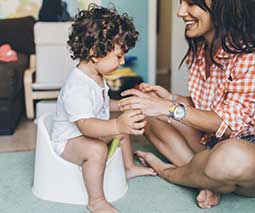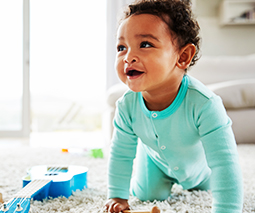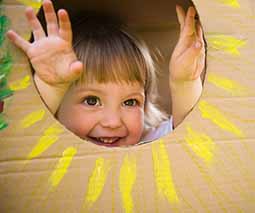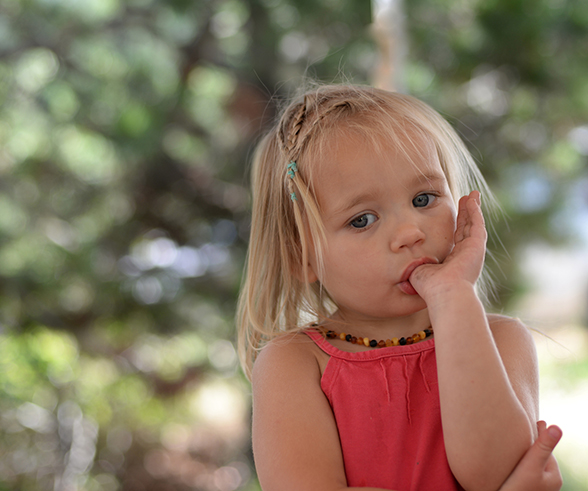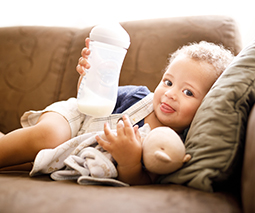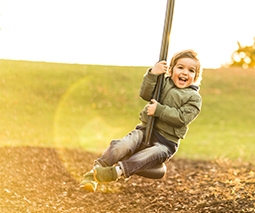Flustered or clueless? Everything you need to know about toddler masturbation
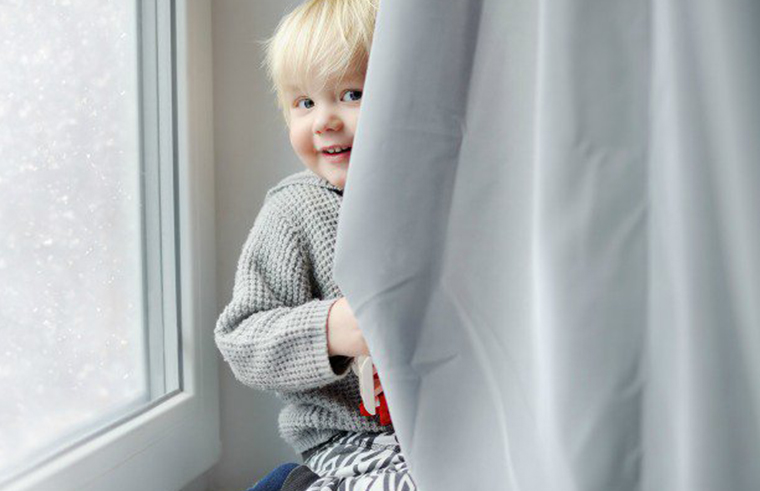
Okay, so we’ve already covered erections, penis size and common issues with both boy and female genitalia. Now it’s time to tackle another tricky topic – toddler masturbation.
Here’s everything you need to know, including how to deal with it when it happens!
Embarrassing bodies
For some parents, there is absolutely nothing more mortifying or embarrassing than catching your young child in the act of masturbation, particularly when you’re in public or there are other people around. Because while no one likes a finger up the nose, it’s hands down the pants that tend to make people a whole lot more uneasy.
And it’s not just little boys who do it either. Little girls can be just as curious about their private parts, so even if there’s no penis to play with, don’t assume they won’t enjoy touching themselves ‘down there’ either.
It’s not sexual
The first thing to remember is that masturbation in toddlers is not sexual. Young children don’t even know what sex is and only touch themselves because they’re exploring their bodies and have discovered that it feels good.
It varies from child to child, but masturbation often starts around the age of two or three, when they’re toilet training and not wearing a fastened nappy all the time. It’s completely normal and is nothing to worry about. However, it is essential to know how to handle it properly.
What you can do
Feeling flustered or clueless? Here are some tips and suggestions for how to deal with your toddler’s masturbation:
- Don’t panic – It’s safe, normal and natural, so there’s no need to freak out or worry your child is turning into a sex maniac. It’s just a new phase they’re going through, and if you have a boy – relax, because he won’t start ejaculating until he hits puberty (around 11 years at the earliest).
- Ignore it – In some instances, it might be appropriate to turn a blind eye and not draw attention to a child’s masturbating (such as when they’re in the bath or bed). Making a big fuss about it might make them want to do it even more, or worse, create anxiety around it.
- Don’t react badly – It’s essential that you don’t make your child feel guilty for masturbating or that there’s something dirty or wrong about it: this could lead to future issues with sexuality.
- Teach boundaries – While privacy doesn’t mean much to a toddler, it’s never too early to explain that touching their private parts is to be reserved only for themselves, and when they’re in private.
- Distract them – A lot of the time toddlers masturbate because they’re bored. So if your child is prone to doing it in public or in front of others (e.g. in the supermarket trolley!), then be sure to have a few toys or games handy to keep little hands busy. Distraction is a wonderful parenting tool!
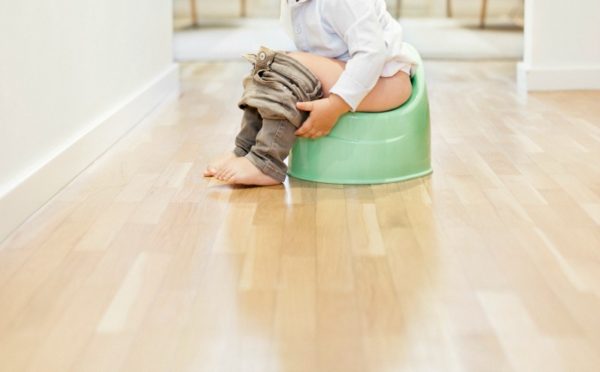
It might be something else
Toddlers may actually touch themselves excessively because they have a urinary tract infection (UTI), rash or thrush (which can be a side effect of antibiotics). Given young children have limited communication, it’s important to look for warning signs such as pain or discomfort when going to the toilet, a fever, strong smelling urine or scratching their genitals (as opposed to rubbing and touching).
Nervous touching
If your toddler is masturbating frequently and often at inappropriate times (despite explaining the boundaries), then there is also the possibility that they’re doing it because they feel anxious or overwhelmed, or aren’t getting enough attention at home. Try distraction techniques, plenty of attention and activities, if you feel it is getting too much.
Also, if you feel as though something’s not quite right, chat with your doctor – they can help discover whether their behaviour is normal, or if it should be looked into further.
Read more stories like this:
- 7 common penis problems in little boys and how to solve them
- Everything you wanted to know about little boys and their erections
- Does size really matter? A guide to what’s normal for your son’s genitalia
- Mums of little boys: Here are 7 fun facts about the penis and testicles
- Why retracting your uncircumcised baby boy’s foreskin is not a good idea
- Flustered or clueless? Everything you need to know about toddler masturbation
- What you need to know about caring for your little boy’s genitals
- An expert answers 8 common mum questions about little boys’ penis health
- Toilet training: Why does my son give himself erections and pee everywhere?
- Weighing it up: Sorting through the pros and cons of circumcision
- Babies can get a urinary tract infection too – here’s what you need to know
